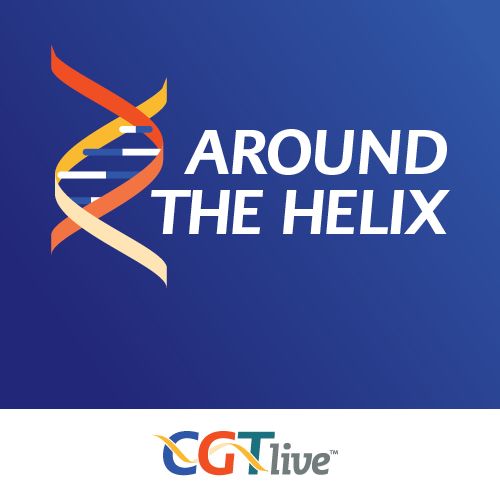Around the Helix: Cell and Gene Therapy Company Updates – February 28, 2024
Catch up on the latest news, breakthroughs, and announcements from biotechnology companies making advancements in cell and gene therapies.

The cell and gene therapy sectors are growing exponentially, with new players emerging daily and much progress being made both in and out of the lab. CGTLive®’s Around the Helix is your chance to catch up with the latest news in cell and gene therapies, including partnerships, pipeline updates, and more.
Have a cell and gene therapy news update you’d like to share with our editorial team? Tag us on social and use #AroundTheHelix!
1. New Clinical Data Presented at Tandem 2024
Catch up on CGTLive's coverage of the 2024 Tandem Meetings |Transplantation & Cellular Therapy Meetings of ASTCT and CIBMTR, held in San Antonio, Texas, February 21-24, 2024. Expert insights will continue to be posted throughout the week.
2. IND Cleared for Solid Tumor Trial of ULBP6-Targeting Natural Killer (NK) Cell Activator
The FDA has cleared 23andMe’s investigational new drug (IND) application for 23ME-01473, a ULBP6-targeting NK cell activator, to be evaluated in solid tumors.
3. Oricell’s GPRC5D-Targeted CAR Cleared for US Evaluation in Patients With R/R Multiple Myeloma
The FDA has cleared Oricell’s investigational new drug IND application of OriCAR-017, allowing the company to initiate clinical development for patients with relapsed/refractory (r/r) multiple myeloma in the United States.
4. ACGT Awards Research Grant to Develop Oncolytic Virus for Glioblastoma
Alliance for Cancer Gene Therapy (ACGT) has awarded a multiyear research grant to E. Antonio Chiocca, MD, PhD, the chair of the Department of Neurosurgery and the codirector of the Institute for the Neurosciences at Brigham and Women's Hospital, and the Harvey W. Cushing Professor of Neurosurgery at Harvard Medical School, to develop an oncolytic virus therapy for the difficult-to-treat brain cancer glioblastoma.
5. Voyager and Neurocrine Choose Candidate From Friedreich Ataxia Gene Therapy Program to Carry Through Further Development
Voyager Therapeutics and its partner Neurocrine Biosciences have made the decision to go ahead with a particular product candidate, which consists of frataxin gene delivered by a novel capsid from Voyager’s TRACER capsid discovery platform. “The nomination of this development candidate in Friedreich Ataxia marks an important step in our strategic collaboration with Neurocrine, reflecting the power of combining Voyager’s TRACER AAV capsids and payload design capabilities with Neurocrine’s expertise in neuroscience and clinical development,” Alfred W. Sandrock, Jr., MD, PhD, the CEO of Voyager, said in a statement.
6. Galapagos Drops Development of Systemic Lupus Erythematosus CAR-T and Makes Layoffs
In a larger overview of its progress as a company in 2023 and its expectations for the coming year, Galpagos noted that it has chosen to discontinue development of its chimeric antigen receptor T-cell (CAR-T) therapy product for systemic lupus erythematosus and that it had reduced its workforce by about 100 employees through the elimination of positions throughout the company. Galapagos stated that the latter move was made to streamline operations and achieve alignment with its focus on innovation.
7. Newly Launched Company PulseSight Therapeutics Intends to Tackle Retinal Disease With Nonviral Gene Therapy
The new company, which launched on February 28, 2024, with seed financing from Pureos Bioventures and ND Capital, will seek to utilize a proprietary platform technology that has previously been tested in a phase 1/2 clinical trial for patients with chronic noninfectious uveitis. The technology delivers DNA plasmids coding for therapeutic proteins via an electro-transfection system.
8. Voyager Therapeutics Makes Progress on Alzheimer Gene Therapy Program
Among the multiple areas of progress the company announced was a report of positive data from its Tau silencing gene therapy program. The update, which pertained to a particular adeno-associated virus-vector based gene therapy, included the finding that the product led to dose-dependent reductions in tau messenger RNA in mice that express the human tau protein.
Newsletter
Stay at the forefront of cutting-edge science with CGT—your direct line to expert insights, breakthrough data, and real-time coverage of the latest advancements in cell and gene therapy.